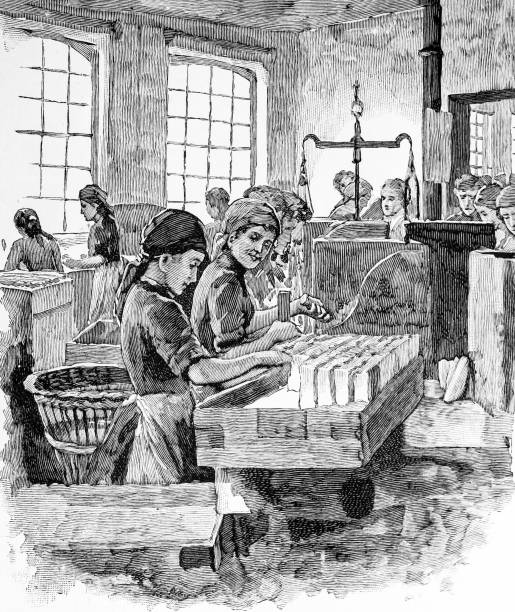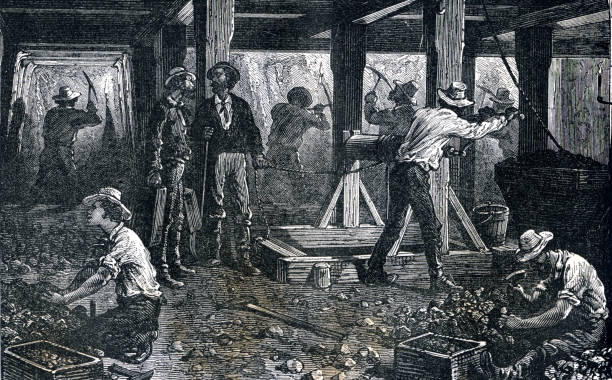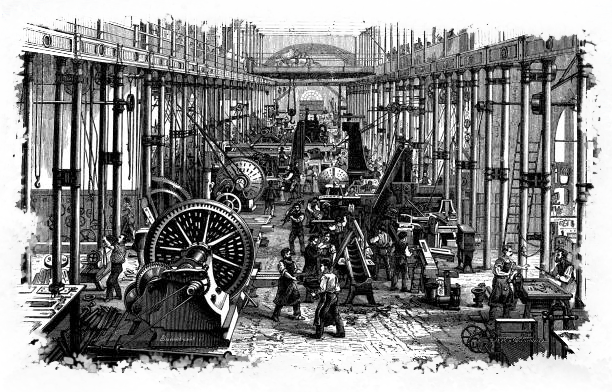The Labor Day movement was one of the most pivotal historical events to impact the future of advocacy for workers’ compensation. Born out of the frustration and grievances of workers who sought better treatment and fair compensation for their labor, the Labor Day movement was a catalyst for significant changes in workers’ compensation, reshaping the rights and protections of American workers.
During the Industrial Revolution dire working conditions including long hours, hazardous environments, and inadequate compensation, led to widespread discontent and demands for change. Workers faced significant risks while toiling in hazardous factories and mines, often resulting in injuries and fatalities that left families destitute.
Organized labor unions and worker associations became the vehicles through which workers’ voices were amplified. These groups organized strikes, protests, and demonstrations to demand safer working environments, shorter workdays, and equitable wages. These led to the establishment of crucial labor laws and regulations that prioritize the welfare of workers, pushing for laws that held employers responsible for compensating injured workers and their families.
The tragedy of the Triangle Shirtwaist Factory fire in 1911 was a turning point that galvanized public sentiment and reinforced the urgency of workers’ protection.

The fire claimed the lives of 146 garment workers, most of whom were young immigrant women. This disaster underscored the need for comprehensive safety regulations and effective workers’ compensation measures. It further reformed and helped push legislation to improve workplace safety standards and compensation for victims of industrial accidents.
The Labor Day movement’s relentless efforts culminated in significant legislative changes. States began to pass laws that established employers’ liability for workplace accidents, providing financial assistance and medical coverage to injured employees. The movement’s influence extended to the federal level with the establishment of the U.S. Department of Labor in 1913, which oversaw labor standards and regulations. The Federal Employees’ Compensation Act of 1916 provided compensation to federal workers injured on the job, setting a precedent for later developments in workers’ compensation.

This impact on workers’ compensation reverberates in today’s labor laws and regulations. The movement laid the groundwork for the establishment of the Social Security Act of 1935, which expanded the scope of workers’ compensation to encompass retirement benefits, unemployment insurance, and disability benefits. The Occupational Safety and Health Act of 1970 reinforced the commitment to safe working conditions, further solidifying the rights of workers.
The Labor Day movement stands as a testament to the power of collective action in effecting transformative change. By challenging the prevailing norms and advocating for workers’ rights, this movement altered the trajectory of workers’ compensation in the United States. The fight for fair treatment, adequate compensation, and safe working conditions led to landmark legislation and a redefinition of the employer-employee relationship. The legacy of the Labor Day movement lives on in the improved protections and benefits that American workers now enjoy, reminding us of the ongoing importance of honoring and upholding their contributions to society.
Athens Administrators is a prominent national Third Party Administrator (TPA) with roots dating back to the 1930’s. Athens Administrators has tailored its business model around a dedication to ensuring that employees—both within their own organization and among their clients—are granted the appropriate care and support brought about by the labor movement.
By meticulously overseeing claims management, risk mitigation, and comprehensive workers’ compensation solutions, Athens Administrators epitomizes the essence of the labor movement’s aspirations, striving to ensure that all workers are afforded the care and benefits they inherently deserve in the modern employment landscape.
The Labor Day movement stands as a crucial part of our history that reshaped the trajectory of workers’ compensation in the United States. The labor movement evolved into a formidable voice advocating for fair treatment, equitable wages, and safe working environments. The tragedies and triumphs of this movement led to a cascade of legislative changes that transformed labor rights, culminating in the establishment of crucial laws and regulations that prioritize the welfare of workers.
In this modern era, where the principles of equitable labor practices continue to evolve, companies like Athens Administrators embody the spirit of the Labor Day movement. By aligning its business model with the ideals of the labor movement and evolving their own company core values Athens Administrators stands as a symbol of the ongoing commitment to safeguarding workers’ rights and well-being. In a landscape that recognizes the pivotal role played by organizations like Athens Administrators, the legacy of the Labor Day movement lives on as a beacon of progress, reminding us of the essential role workers’ welfare plays in shaping a just and equitable society.

